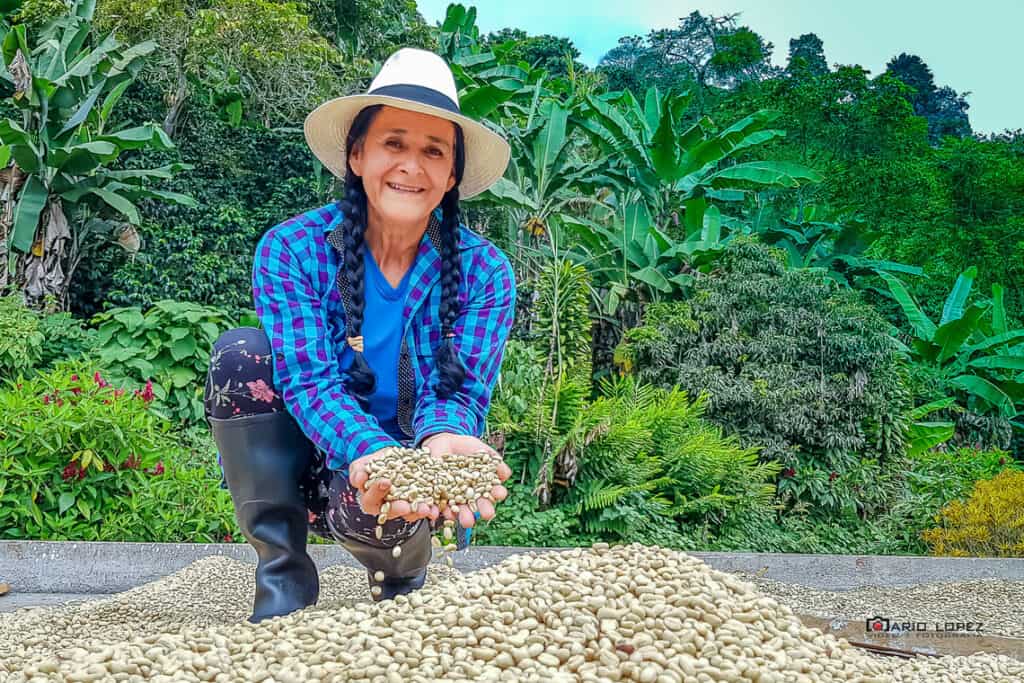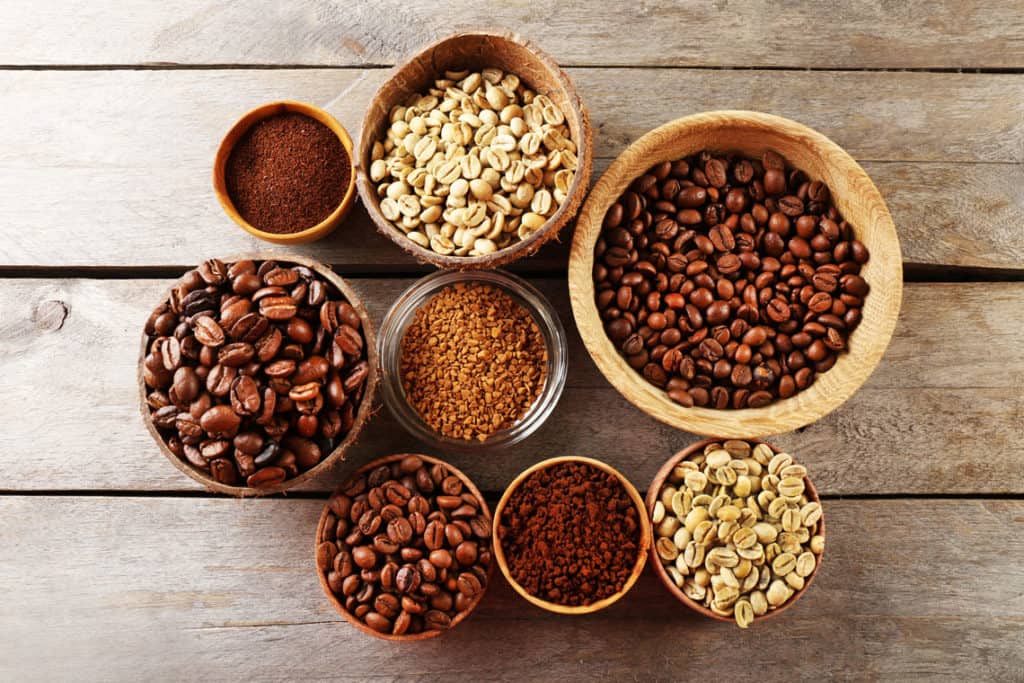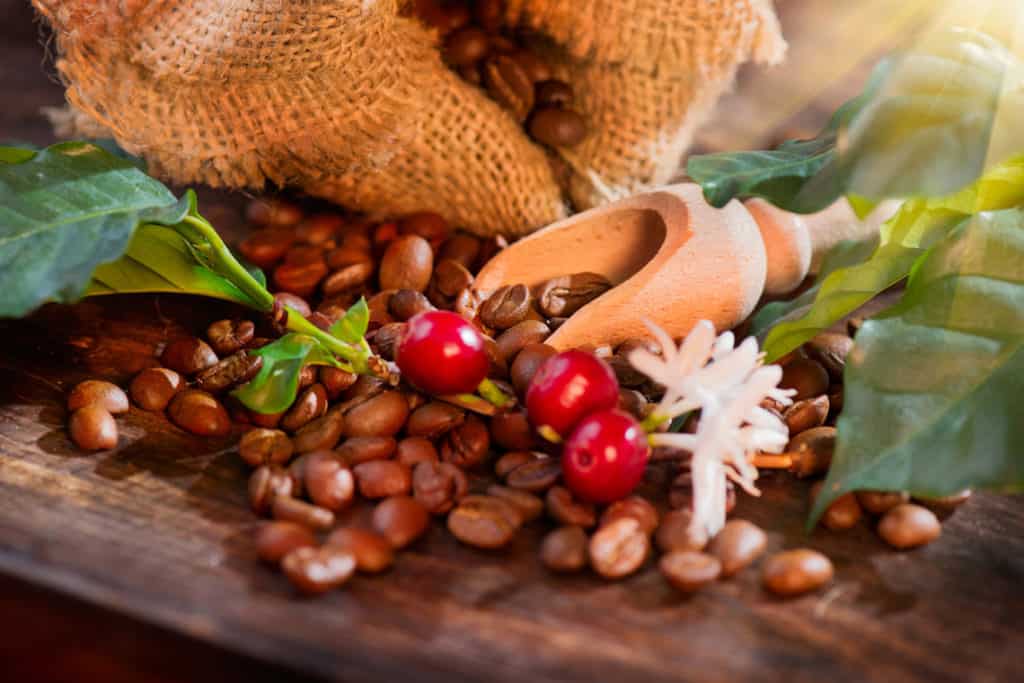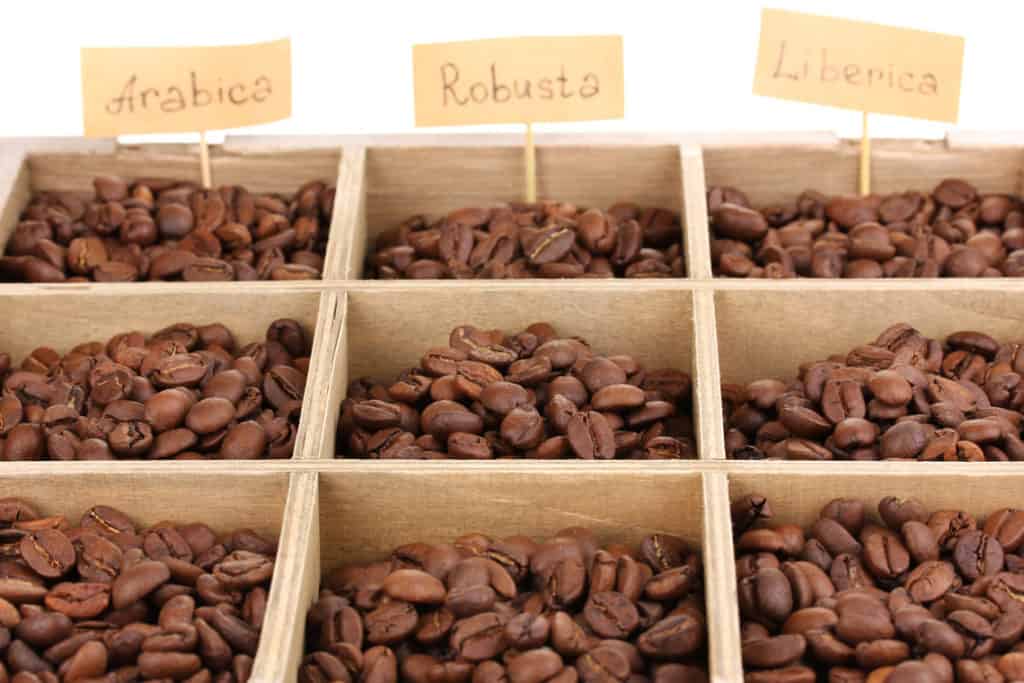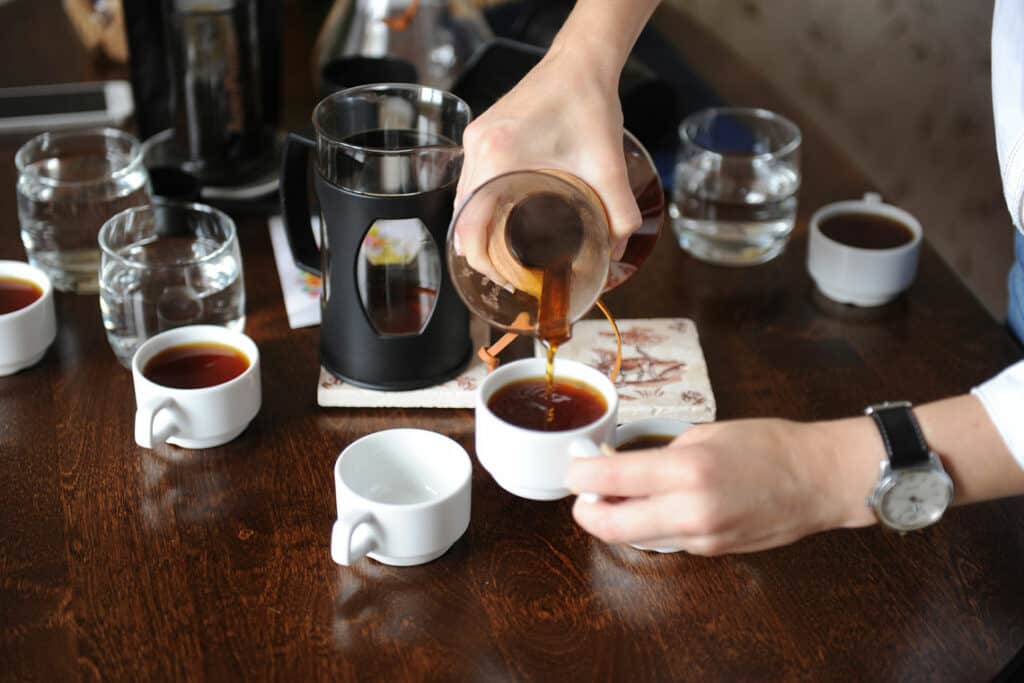The Bean Behind the Brew
Have you ever sipped your morning java and wondered, “Where does this delightful elixir come from?” No? Just me? Well, stick around anyway, because we’re about to venture into the wonderful world of fair trade coffee.
So, what is fair trade coffee? Picture this – a world where coffee farmers receive a fair wage, where their communities thrive, and where our earth is treated with respect. That’s the realm of fair trade coffee.
The Path to Fair Trade Coffee Certification
Now you might be wondering: how does coffee earn that prestigious fair trade badge? The certification process isn’t a cakewalk. It’s a detailed procedure that ensures the coffee you sip meets strict economic, social, and environmental standards. Here are the key checkpoints on the road to certification:
- Fair Price Guarantee: To get the certification, farmers must receive a price that adequately covers the cost of sustainable production. This ensures they’re not shortchanged for their hard work.
- Safe Working Conditions: The farms must provide safe and healthy working conditions for their employees. This standard discourages exploitative labor practices and encourages a supportive work environment.
- Direct Trade: The certification process emphasizes direct trade, eliminating unnecessary intermediaries. This direct-to-consumer approach ensures that a larger portion of the profit goes back to the farmers.
- Environmental Stewardship: Coffee farms must adopt sustainable farming practices. That means using environmentally friendly methods, promoting biodiversity, and managing waste responsibly.
- Empowerment of Workers: More than just fair wages, fair trade is about empowering farmers and workers. It’s about ensuring they have the ability to organize, negotiate their conditions, and participate in decision-making.
The Fair Trade certification acts as a seal of approval, signaling that a product aligns with these ethical and sustainable practices. So, when you see that Fair Trade label, know you’re supporting a product that has passed a stringent ethical examination.
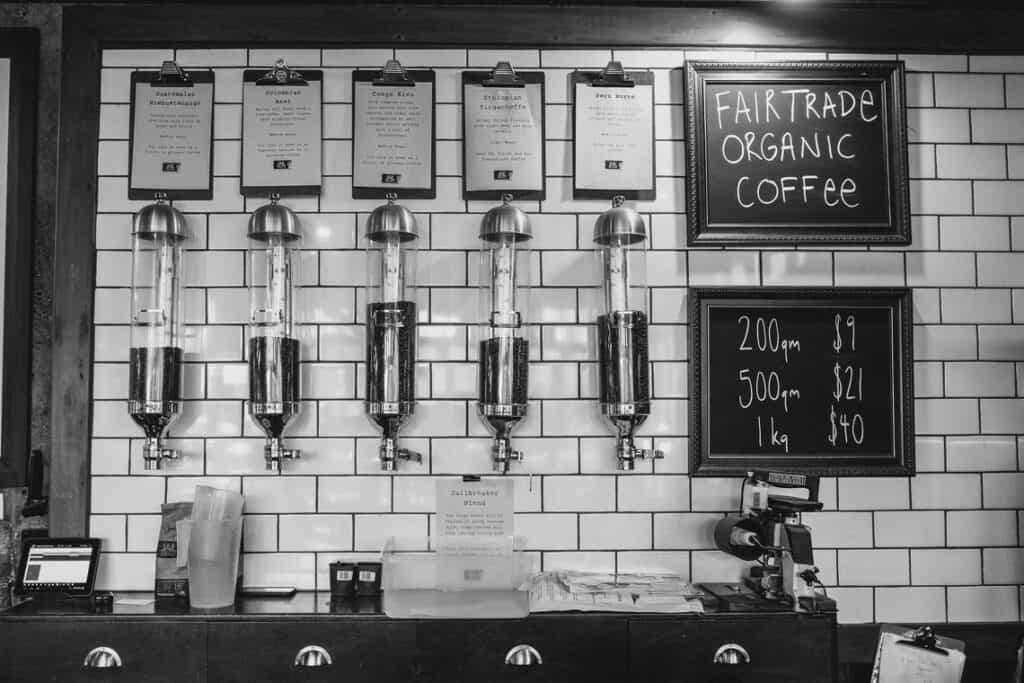
Why Fair Trade Matters
You might be wondering, “Why should I care about fair trade coffee? My regular store-bought joe seems just fine.”
Well, let’s take a stroll down the coffee aisle. We’ll skip past the megabrands that often prioritize profit over people, past the brands that might have a cute animal on the packaging but aren’t giving farmers their fair shake. Then, we’ll arrive at the fair trade section, where your purchase means supporting hard-working farmers and sustainable practices.
It’s a no-brainer, really.
Sustainability: Not Just a Buzzword
But fair trade coffee isn’t just about justice. It’s about sustainability too. Sustainable coffee farming focuses on the long-term health of coffee crops and the earth. It’s like giving Mother Nature a spa day while still enjoying your delicious cup of joe.
Every Sip Counts
By choosing fair trade coffee, you’re voting with your dollars. You’re saying, “I value the hard work of farmers and the health of our planet over convenience and saving a few cents.”
So, next time you’re brewing a pot, think about the journey your coffee beans have been on. Then, sit back, enjoy the aroma, and feel good about making a difference. After all, there’s nothing quite like the taste of coffee that’s been brewed with care and conscience.
Your Morning Joe Just Got a Whole Lot Better
Who knew that fair trade coffee could pack such a punch? It’s about more than just a great taste; it’s about ensuring a brighter future for farmers, their communities, and our planet. So, here’s to drinking coffee that’s as good for the soul as it is for the palate. Cheers!
Last Updated on June 1, 2023 by Cristina Vélez
